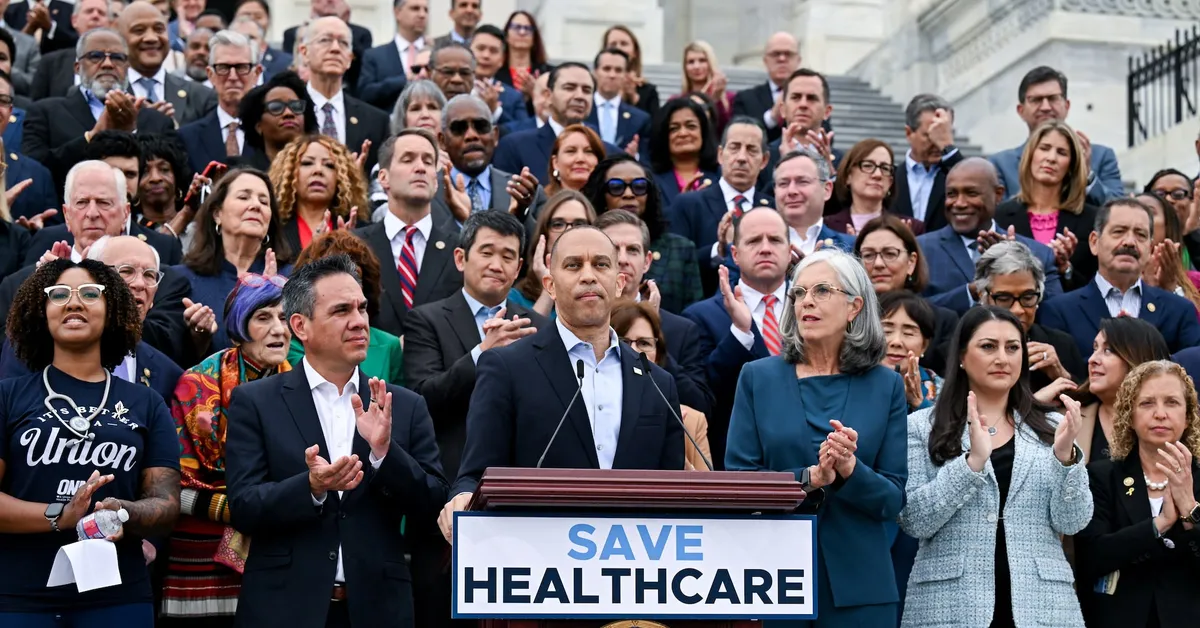
On September 30, U.S. President Donald Trump issued a stark warning to congressional Democrats, indicating that a potential government shutdown at midnight could lead to irreversible actions by his administration. Speaking from the White House Oval Office, Trump stated, “We can do things during the shutdown that are irreversible, that are bad for them and irreversible by them, like cutting vast numbers of people out, cutting things that they like, cutting programs that they like.” This statement underscores the serious implications of a government shutdown for various federal programs.
The United States is on the brink of entering its 15th government shutdown since 1981 unless a temporary funding agreement is reached between Republicans and Democrats in Congress. With the new fiscal year starting on Wednesday, the Republican-controlled Senate is expected to vote on a temporary spending bill that has already failed once. However, there are no indications that a second vote will yield a different outcome before the midnight deadline (0400 GMT Wednesday).
Democrats are pushing to modify the bill to extend health benefits for millions of Americans, which are set to expire at the end of the year. In contrast, Republicans are advocating for these health benefits to be addressed separately. The ongoing budget battles have become a common occurrence in Washington, reflecting the growing dysfunction in national politics. Historically, these disputes are often resolved at the last minute, as seen during the 35-day government shutdown in 2018 and 2019 over immigration issues.
The current crisis revolves around $1.7 trillion allocated for federal agency operations, which constitutes about one-quarter of the government’s total budget of $7 trillion. The remaining budget primarily funds health and retirement programs and services to manage the escalating national debt, which stands at approximately $37.5 trillion. As the deadline looms, federal agencies are preparing for shutdowns by outlining plans to close offices involved in scientific research and customer service, potentially sending thousands of workers home.
Experts warn that the repercussions of a government shutdown could be felt almost immediately. Jonathan Burks, a health specialist at the Bipartisan Policy Center, highlighted potential disruptions in Medicare reimbursements for at-home acute hospital care, forcing patients to seek inpatient facilities. Furthermore, Medicare reimbursements for telehealth visits would also cease at midnight, impacting access to care for many Americans.
Airlines have cautioned that a shutdown could lead to delays in flight operations, while the Labor Department would halt the issuance of its monthly unemployment report, a crucial indicator of economic health. The Small Business Administration announced it would stop processing loans, and the Environmental Protection Agency indicated it would suspend certain pollution cleanup efforts. The longer the shutdown persists, the wider the impact, potentially affecting public housing subsidies and causing delays in grant money for early education programs.
On Monday, a meeting between Trump and congressional leaders ended without any agreement. Trump subsequently shared a deepfake video that portrayed manipulated images of Democratic Senate Leader Chuck Schumer criticizing his party, which drew sharp rebuke from top House Democrat Hakeem Jeffries. Jeffries responded by urging Trump to communicate directly rather than resorting to “racist and fake AI video.”
As the deadline approaches, any last-minute agreement would require approval from the Republican-controlled House, which is not scheduled to convene until after the funding expiration. Trump's readiness to bypass established spending laws has intensified the uncertainty surrounding the situation, with indications that he may continue downsizing the federal workforce if Congress fails to act.
With Republicans holding the majority in both chambers of Congress, they need at least seven votes from Democrats to pass any legislation in the Senate. In addition to health subsidies, Democrats are also seeking provisions to ensure that Trump cannot reverse any changes made to healthcare should they be signed into law. As they navigate these turbulent waters, Democrats are under pressure from their supporters to secure a legislative victory ahead of the crucial 2026 midterm elections.
Some party members, however, are questioning whether risking a government shutdown is a wise strategy. Democratic Senator John Fetterman of Pennsylvania articulated this concern, stating, “It’s not about politics or who gets blamed for it. It’s about the damage to millions of Americans.” With the stakes high, both parties must navigate these challenges carefully to avoid significant repercussions for the American public.